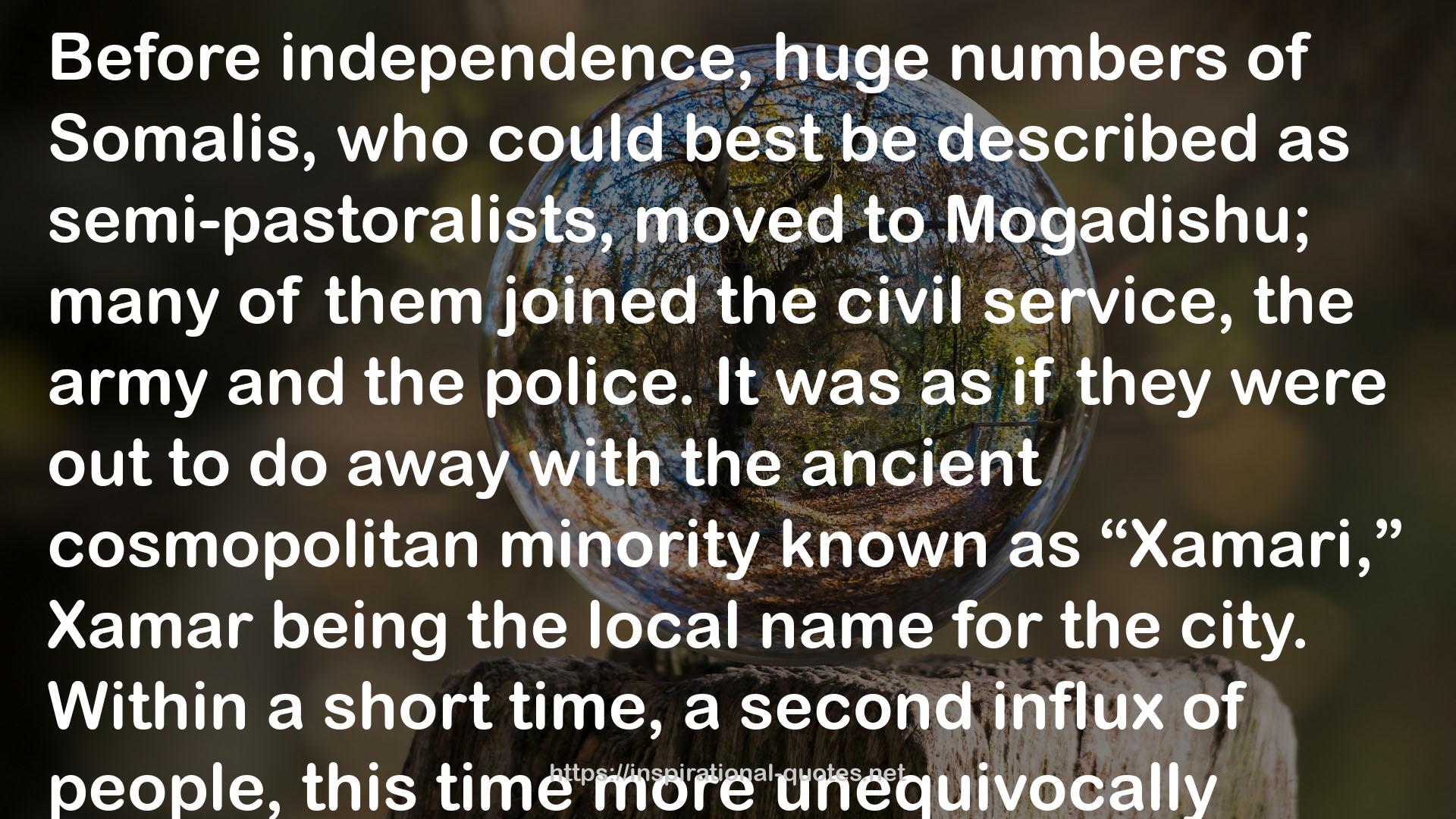" Before independence, huge numbers of Somalis, who could best be described as semi-pastoralists, moved to Mogadishu; many of them joined the civil service, the army and the police. It was as if they were out to do away with the ancient cosmopolitan minority known as “Xamari,” Xamar being the local name for the city. Within a short time, a second influx of people, this time more unequivocally pastoralist, arrived from far-flung corners to swell the ranks of the semi-pastoralists, by now city-dwellers. In this way, the demography of the city changed. Neither of these groups was welcomed by a third—those pastoralists who had always got their livelihood from the land on which Mogadishu was sited (natives, as it were, of the city). They were an influential sector of the population in the run-up to independence, throwing in their lot with the colonialists in the hope not only of recovering lost ground but of inheriting total political power. Once a much broader coalition of nationalists had taken control of the country, these “nativists” resorted to threats, suggesting that the recent migrants quit Mogadishu. “Flag independence” dawned in 1960 with widespread jubilation drowning the sound of these ominous threats. It was another thirty years before they were carried out.74 "
― David Kilcullen , Out of the Mountains: The Coming Age of the Urban Guerrilla
